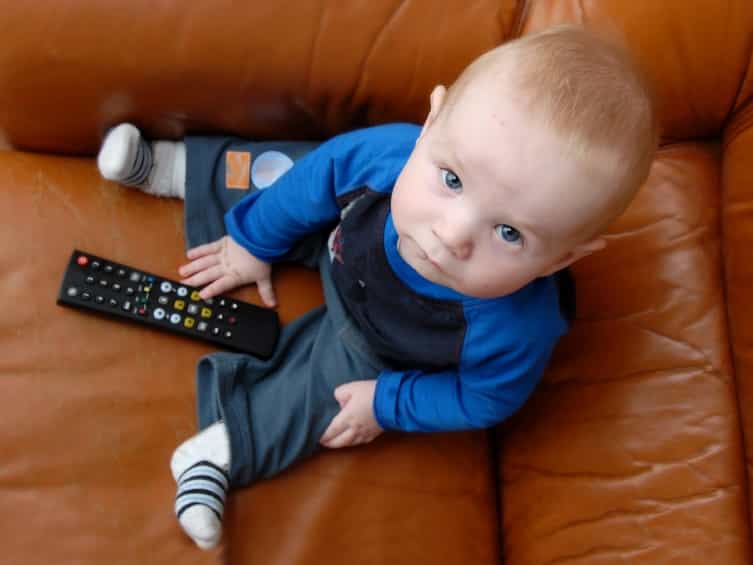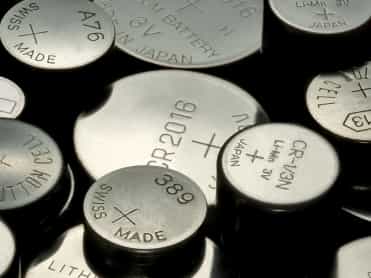Batteries Cause Devastating Injuries

The Bottom Line
Swallowed batteries burn through a child’s esophagus in just 2 hours, leading to surgery, months with feeding and breathing tubes, and even death. About the size of a nickel, 20 mm, 3-volt lithium coin cells are the most hazardous as they are big enough to get stuck and burn faster. Secure battery compartments and keep loose batteries away from children.

The Full Story
While most button battery ingestions are benign, passing through the gut without a problem, in recent years the number of debilitating or fatal battery ingestions has dramatically increased. Fatalities and cases with severe esophageal or airway burns and subsequent complications have been reported, even in patients who initially have no symptoms after swallowing the battery.These disastrous outcomes occur when batteries get stuck in the esophagus, usually in small children. Large diameter button batteries, especially 20 mm diameter lithium coin cells, are implicated in most of these serious cases, but other battery types and smaller button batteries may also get stuck and cause serious problems. Burns and life-threatening complications can occur if batteries aren't removed from the esophagus within 2 hours. Batteries beyond the esophagus rarely cause a problem and can usually be left to pass spontaneously if the patient remains asymptomatic. Serious complications have also been seen when small batteries are placed in the nose or ear - another situation where urgent removal is critical.
Tips for Protecting Young Children
- Never leave batteries sitting out. Store spare batteries, and batteries to be recycled, out of sight and reach of young children. If recycling is not possible, wrap used batteries securely and discard them where a child can’t find them.
- Check all household devices to be certain the battery compartment is secured shut. Use strong tape to secure compartments that children can open or that might pop open if the device is dropped. Only purchase products that require a screwdriver or tool to open the battery compartment, or that are closed with a child-resistant locking mechanism. Batteries are everywhere.
- Check:
- Remote controls
- Tea lights and flameless candles
- Garage door openers
- Keyless entry fobs
- Bathroom scales
- Parking transponders
- Toys
- Cameras
- Watches
- PDAs
- Calculators
- Digital thermometers
- Hearing aids
- Singing greeting cards
- Talking books
- Portable stereos
- Handheld video games
- Cell phones
- Home medical equipment/meters
- Flash and pen lights
- Flashing shoes
- Toothbrushes, bedwetting monitors
- Keychains
- Flashing or lighted jewelry or attire
- Any household item that is powered
- Be especially cautious with any product that contains a battery that is as big as a penny or larger.
- The 20 mm diameter lithium cell is one of the most serious problems when swallowed.
- These problem cells can be recognized by their imprint (engraved numbers and letters) and often have one of these 3 codes: CR2032, CR2025, CR2016.
- If swallowed and not removed promptly, these larger button batteries can cause death - or burn a hole through your child's esophagus.
- Don't allow children to play with batteries or with battery powered products that have easily accessible batteries.
- Make sure all hearing aids for children have child-resistant battery compartments and make sure the lock is activated when the child is wearing the aid.
- Alert family members who wear hearing aids to the importance of keeping the batteries out of reach of small children at all times. That can be quite a burden since most hearing aid users remove the batteries from the aids each time they take the aids off.
- Don't insert or change batteries in front of small children.
Tips for Protecting Older Children and Adults
- Never put batteries in your mouth, to test, to hold, or for any reason. They are slippery and easily swallowed.
- Don't mistake batteries for pills. Don't store batteries near pills or in pill bottles. Don’t leave them on bedside tables or place them loose in your pocket or purse. Look at every medicine you intend to swallow.Turn on the lights, put on your glasses, read the label and look at the medicine itself.
- If you use a hearing aid, these steps are especially important. All too often, the tiny hearing aid batteries are ingested with or instead of medications.
- Avoid storing or leaving batteries where they might be mistaken for, or swallowed with, food.
- Don't leave batteries in drinking glasses or adjacent to nuts, candy, popcorn or other finger foods.
If a Battery is Swallowed or Placed in the Ear or Nose
- Call the National Battery Ingestion Hotline at 1-800-498-8666, immediately. Prompt action is critical. Don't wait for symptoms to develop. If the battery was swallowed within the prior 12 hours, especially if it might have been a lithium coin cell, and the child is able to swallow, give 2 tablespoons honey every 10 minutes while going to the ER. Do not delay going to the ER to give honey. Other than honey, don't eat or drink until an x-ray shows the battery is beyond the esophagus. Batteries stuck in the esophagus must be removed as quickly as possible as severe damage can occur in just 2 hours. Batteries in the nose or ear also must be removed immediately to avoid permanent damage.
Swallowed a battery?
Get help from the battery ingestion hotline immediately
CALL 800-498-8666
For More Information
Button Battery Mechanism of Injury
References
Swallowed a battery?
Get help from the battery ingestion hotline immediately
CALL 800-498-8666
